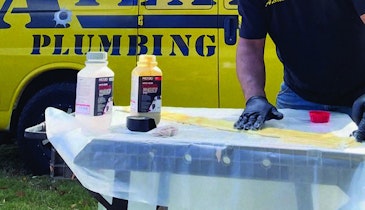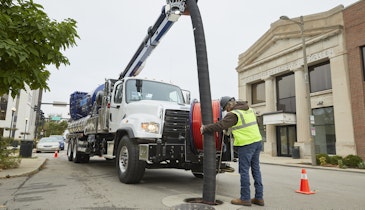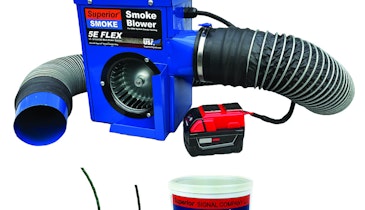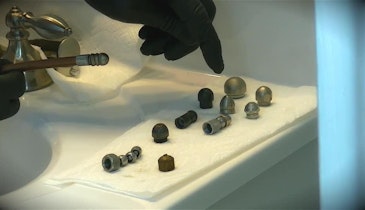When it comes to operating a drain-cleaning business as a franchise or staying independent, there are good arguments on both sides.
Franchisees cite business-building benefits such as marketing support, budget guidance, pricing guidelines and a broad network of fellow franchisees to lean on for advice and assistance. Independents, on the other hand, prize the freedom to operate the way they want to without answering to a corporate office.
In the end, there is no right or wrong. Most contractors interviewed for this story deliberated long and hard about which way to go and had compelling reasons for the decisions they made.
Both sides
Frankey Grayton, owner of Grayton Plumbing in Washington, D.C., knows both sides of the issue. He explored a franchise about eight years ago and ultimately decided to remain independent.
“In hindsight, I’ve talked to other people who attribute their success to franchises,” he says. “And I certainly understand why people jump on board. I’ve had friends who jumped on the franchise bandwagon who were smaller than me and twice as big as me, and they all had their reasons.
“Some of them needed someone to kind of kick them in the butt to do things, like turn in reports. Others weren’t good at marketing, so they figured it would be great if someone could help them. Another one wanted to retire by age 40 and thought being a franchise gave him an exit strategy to walk away when he wanted to walk away.”
Corporate support
For Don Kebler, vice president of a Mr. Rooter Plumbing franchise in St. Johns, Mich., buying a franchise in 2008 was an easy choice. The franchise systems helped his family turn a 37-year-old mom-and-pop plumbing and heating shop into a larger, more diversified business.
“The support we get from the Mr. Rooter corporate office is great,” Kebler says. “I have a coach who looks over what we do. She gives me direction on things we need to do better. For instance, they’ll take a look at our financial numbers, help us with annual budgeting and marketing, and provide things like employee handbooks and proper procedures for doing things. Our company never had those things in place.”
Steve Harmon, owner of Harmon Plumbing Services Inc., which does business as a Rooter-Man franchise in Raleigh, N.C., was courted for years by several franchises before he agreed to join Rooter-Man in 2008.
Retained identity
“I’d reached a lull – a stagnant point – and felt like I was headed down the road to the 30-year, three-truck syndrome,” Harmon says. “I wanted more than that. I felt like, ‘I’ve come this far and been at it this long – why can’t I get over the top?’ I kept getting the pieces of the puzzle to operate like a franchise, but I couldn’t put them together.”
Rooter-Man helped him accomplish that, and without giving up one of his most important business assets: the equity in his company’s name. “Rooter-Man gives you the system and tools you need to succeed, but less hands-on control,” he notes.
“I didn’t have to give up my company name. That was important to me because I ran my business for 19 years before I bought a franchise. I didn’t want to lose that 19 years I spent building a good reputation with long-standing customers.”
Harmon also learned how to figure out what percentage of sales revenue he should devote to various aspects of the business, such as marketing, in order to achieve a certain profit margin. “You can tweak it a little because you’re going to fluctuate up and down,” he says. “But you try to keep it close. And it’s different if you’re established or in a growth mode. Marketing expenses might be higher, for example, for a new company as opposed to an established company.”
Name recognition
For others, such as Roy Birnie, owner of a Mr. Rooter franchise in Hamilton, Ont., national name recognition was a big attraction. His company used to receive phone calls from customers who mentioned Mr. Rooter as a competitor. “We realized that if the franchise was pulling that many calls a week, we needed to rethink our position,” Birnie says. “It made us realize all the business we were losing in our market.”
Kebler adds, “Name recognition was a big factor. The Mr. Rooter brand really stands out. They helped me put together a marketing plan and benchmark it against other organizations in the same gross-sales range as my business, so I’m not out there freewheeling it.”
Stephen Bennett, who owns a Roto-Rooter franchise in Kamloops, B.C., agrees. “A good, reputable brand name carries a lot of weight,” he says. “With it, you’re going to develop a business faster if you’re starting out new than if you’re an independent plumber working out of your basement. You’re wearing that uniformity on the vehicle, products and equipment. There’s strength in uniformity.”
On the other end of the spectrum, Grayton figured he could effectively brand his company just as well on his own. He has done that to great effect with a fleet of six service trucks that display his picture on the back and carry highly distinctive vinyl-wrap graphics.
“I believed the franchisers could deliver what they said they would deliver, but I also believed I could deliver it myself,” he says. “I’m now one of the most recognized plumbers in the city. They were setting out to establish a national brand, but that didn’t benefit me.”
Financial issues
David Ratliff, owner and general manager of Midway Plumbing in Abilene, Texas, believes franchising would make more sense if his business wasn’t doing well. “We’re very profitable and getting great margins, so I can’t see any advantage unless it could increase sales,” he says. “But I’m in a market of 115,000 people pulling out $3 million a year in (gross) sales.”
Ratliff also prefers not having to pay franchise fees. While he doesn’t know what various franchises charge, he figures it would be a significant amount of money.
Derrick Jackson, owner of Precision Plus Plumbing in Philadelphia, Pa., agrees. He considered buying a franchise about five years after he started his business because franchises have a lower failure rate than independents and can generate more business because of national name and brand recognition. But in the end, finances trumped all.
“The up-front cost was too high – that’s what held me back,” Jackson says. “Especially in this economy, I didn’t want that kind of debt. The name of the game is keeping expenses as low as possible, and I would have owed them that money no matter what the economy is doing or what revenue I’m pulling in. The bottom line is I’d be paying someone to put their name on the side of my truck. I wanted my own name on the side of my truck.”
Network of colleagues
Kebler says franchises offer another benefit: A network of colleagues he can rely on for help, whether with over-the-phone advice or on-the-job assistance. Once the city of St. Johns asked if Kebler could perform mainline camera inspections.
“We didn’t have the expertise, but another nearby franchiser did, so he came down and worked with us as a team,” he says. “He more or less worked for us as a subcontractor, and we didn’t have to spend $50,000 on equipment. His assistance helped get us in the door to do future work for this municipality.”
Birnie adds, “After buying our franchise, we became part of a larger group, and rather than one or two heads trying to make a decision, we had six or seven or eight guys that we could sit down with locally to discuss our challenges, and work together. We’d never experienced anything like that before, and it’s worked out exceptionally well.”
Bennett often calls other franchisers to discuss topics such as marketing (radio versus Internet advertising, for instance) or to see what new technologies work well in their areas. “I first heard about waterjetters from several other franchisers,” he says. “I didn’t have one, so I started spot-checking with other franchisers around the country. Eventually we purchased one and it paid for itself in three months. Was that a good conversation? Absolutely!”
Decision-making freedom
But for contractors like Steven Davis from Rogers Septic Tank and Plumbing Inc. in Bessemer, Ala., there’s nothing like the freedom to operate as he sees fit.
“I like to make my own decisions without a lot of rules and regulations,” he says. “I’ve always been pretty independent-minded. In a franchise, you have to go by their guidelines. It’s almost like working for somebody. If there’s an elderly lady and I want to do a job for half of what it’s worth, I can. I do a lot of charity work that I couldn’t do if I was in a franchise.”
Davis also says independent owners have more flexibility to be entrepreneurial and nimble enough to move fast on business opportunities. For instance, if a customer calls with a problem that requires a new piece of equipment, he can quickly decide whether to make the investment. “I can make that purchase happen in a matter of days, maybe even hours, but you can’t do that in a big corporation,” he says.
Ratliff agrees, noting that he’s free to market his company in whatever way he feels is best. In a franchise, much of that planning is laid out for the owner. He doesn’t think that’s necessarily bad, especially for contractors who lack marketing skills. “It’s just that I’ve been self-employed ever since I was 27 years old,” he says. “I want the freedom to make my own decisions – and my own mistakes. I don’t need anyone to hold me accountable. I’m harder on myself than anyone.
“And even with a franchise, there’s no guarantee you’ll be successful. One of my best friends owns a McDonald’s franchise, and even a McDonald’s can fail. What they give you is the tools to succeed.”
Jackson also points out that some franchises limit the services a company can offer – for example, barring a plumbing company from expanding into HVAC work – and impose geographic restrictions. “If I’d get a call from a Zip code that I don’t service, I might need to get some kind of corporate approval,” he says. “As an independent, I can go wherever I want.”
On the other hand, Bennett says Roto-Rooter gives him the flexibility to build his business. “They’re not always knocking on your door to see your books or review your business,” he says. “You can build your business as an extension of you, bolstered by the uniformity of their brand strength.”
Timing is everything
Grayton says timing is a big factor – that buying into a franchise may make more sense at one point in a career than another. “The franchise I was considering emphasized that a nationally branded company provides an easier exit strategy down the road,” he says. “But at the time, I was 33 years old with no intentions of exiting. So for a guy who’s 50 or 60 years old, maybe that’s a compelling reason to consider franchising.”
Ratliff, who is 48, concurs that franchises offer a better exit strategy. “But at my age, I don’t see myself selling or retiring for quite some time,” he says. “I see about 20 more years of this, unless someone is waving a great, big, fat checkbook at me. “I think franchises are a great thing for most people. Truth be known, a lot more people will be more successful with a franchise instead of going it alone. But I wouldn’t. I know I wouldn’t be a very good employee.”
Judging from the number of successful contractors in both independent and franchise drain-cleaning businesses, either option can lead to a prosperous and satisfying career.





